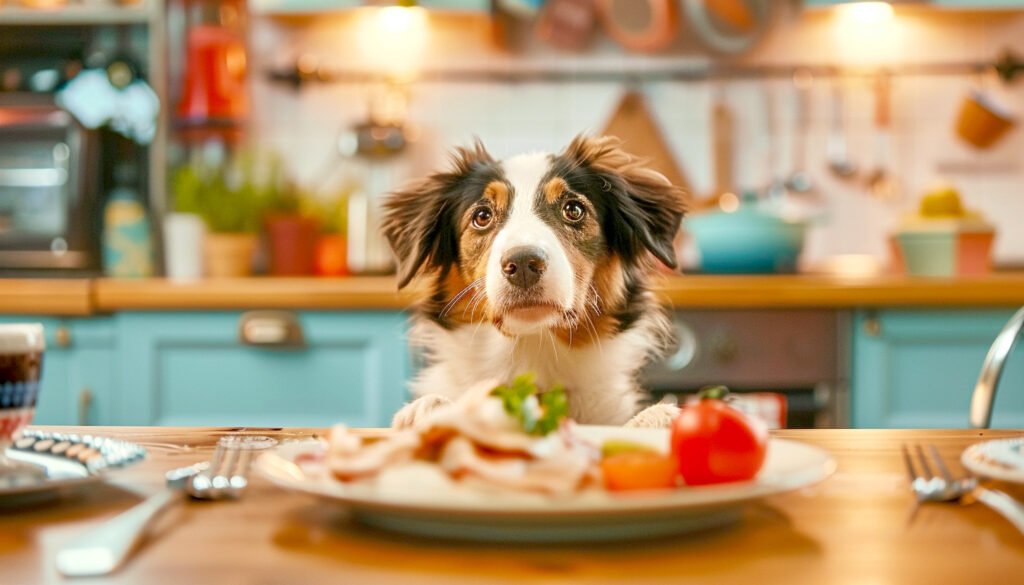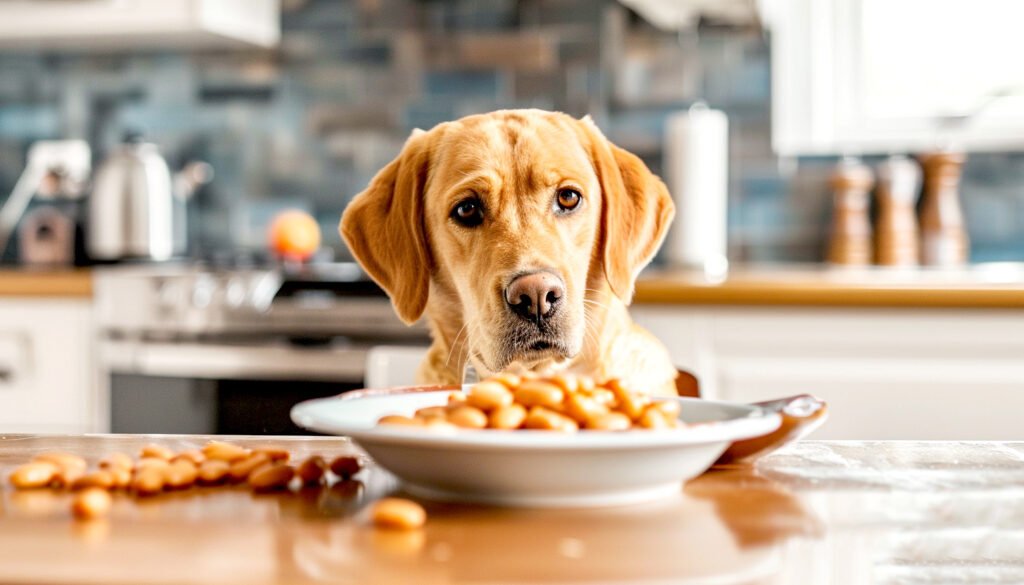For dog owners who are seafood aficionados, the question of whether dogs can partake in your culinary delights may have crossed your mind. Scallops, prized for their succulent flesh, are a delicacy for many humans, but is it okay to share a few with our canine companions?
In this blog post, we’ll dig into the dish about scallops and dogs, providing vital information to keep your pet safe and happy.
Contents
- 1 What are Scallops?
- 2 Nutritional Overview of Scallops for Dogs
- 3 Can Dogs Eat Scallops?
- 4 Potential Benefits of Scallops for Dogs
- 5 Potential Risks of Feeding Scallops to Dogs
- 6 Signs of Scallop Allergies or Intolerance in Dogs
- 7 Safe Ways to Feed Scallops to Dogs
- 8 Alternatives to Scallops for Dogs
- 9 Conclusion: Can Dogs Eat Scallops Safely?
- 10 FAQs:
What are Scallops?
Scallops, a type of shellfish, inhabit oceans across the globe. They are bivalve mollusks, meaning they have two shells that open and close like a clam or oyster. The “meat” is the part that most people eat, which is actually the adductor muscle that holds the two shells together. Scallops are low in fat, high in protein, and contain essential nutrients such as magnesium, potassium, and vitamin B12. They are also a good source of omega-3 fatty acids, which can benefit dogs’ skin and coat health.
Nutritional Overview of Scallops for Dogs
The Good Stuff
Scallops pack a protein punch along with a splash of vitamins and minerals, making them a potentially beneficial addition to your dog’s diet. Rich in omega-3 fatty acids, scallops can contribute to a healthy coat and skin. They also contain vitamin B12, zinc, and magnesium, essential for your dog’s overall health.
Should Dogs Pass on the Scallops?
Despite their nutritional benefits, scallops come with a few caveats for canine consumption. High levels of purines can pose a risk for dogs prone to certain health conditions like gout. Additionally, the preparation and serving methods can introduce unwanted elements such as garlic, butter, or oils, which are not dog-friendly.

Can Dogs Eat Scallops?
The short answer is yes, dogs can eat scallops safely. However, just like with any human food, there are a few things to keep in mind before sharing this seafood delicacy with your furry friend.
- Serving size: As with any new food, it’s essential to start small and see how your dog reacts. Too many scallops can cause an upset stomach or diarrhea in dogs.
- Preparation: Scallops should be thoroughly cooked before feeding them to your dog. Consuming raw or undercooked shellfish can put your pet at risk of bacterial infections.
- Seasonings and sauces: Scallops are often served with various seasonings and sauces, which may contain ingredients that are harmful to dogs, such as garlic and onion. It’s best to stick with plain, unseasoned scallops for your pup.
- Allergies: Similar to humans, dogs can develop allergic reactions to specific foods. If your dog has never eaten scallops before, monitor them closely for any signs of an allergic reaction such as vomiting, itching, or difficulty breathing. If your dog shows any of these symptoms, stop feeding them scallops immediately and consult with a veterinarian.
Potential Benefits of Scallops for Dogs
As mentioned earlier, scallops are high in protein and contain essential nutrients that can benefit dogs’ health. Here are some potential benefits of sharing a few scallops with your pup:
- Healthy skin and coat: The omega-3 fatty acids found in scallops can improve the condition of your dog’s skin and coat, making it shiny and reducing dryness and itchiness.
- Strong bones: Scallops are a good source of calcium, which is essential for maintaining healthy bones in dogs.
Potential Risks of Feeding Scallops to Dogs
While scallops offer some potential benefits for dogs, there are also a few risks to keep in mind:
- High cholesterol: Scallops are high in cholesterol, which can be an issue for dogs with heart or weight problems. If your dog has any existing health issues, it’s best to consult with a veterinarian before feeding them scallops.
- Parasites: Raw or undercooked scallops may contain parasites that can be harmful to dogs. Cooking the scallops thoroughly will eliminate this risk.
- Sodium: Scallops are naturally low in sodium, but some preparations may add salt or other seasonings that can be harmful to dogs. Keep an eye out for added ingredients and avoid feeding your dog seasoned scallops.

Signs of Scallop Allergies or Intolerance in Dogs
Understanding the Body’s Reaction
Allergic reactions and food intolerances aren’t just human issues, and dogs are no exception. Keep an eye out for symptoms such as itching, vomiting, diarrhea, and difficulty breathing, which could signal a problem with scallop consumption. If your dog displays any of these symptoms, a trip to the vet is in order.
Monitoring Mealtime
While the protein found in scallops is beneficial for dogs, it’s vital to watch your pup’s caloric intake. Moderation is essential, as too many scallops can result in gastrointestinal upset and diarrhea. Additionally, although rare, adverse reactions may occur; being mindful of portion sizes and monitoring mealtime helps manage any potential issues.
Safe Ways to Feed Scallops to Dogs
The Dos of Feeding Scallops
Moderation is key. Remember, treats should only account for 10% or less of your dog’s daily caloric intake. When preparing scallops for your dog, ensure they are plain and not seasoned with any potentially harmful ingredients. Small, thoroughly cooked portions are best to avoid gastrointestinal issues and the risk of choking or mild digestive upset.
The Don’ts of Feeding Scallops to Dogs
While the occasional scallop can be a healthy treat for your dog, there are definite no-nos to avoid. Never feed your dog raw or undercooked scallops due to the risk of parasitic infections. Avoid seasonings, as many common ingredients like garlic and onion are toxic to dogs.
Also, be mindful of the cooking method; scallops fried in oil or butter can lead to unnecessary fat intake and upset your dog’s stomach. When incorporating scallops into your dog’s diet, the priority should always be on their health and safety, ensuring that these special treats remain both enjoyable and beneficial.
Alternatives to Scallops for Dogs
If the seafood craving for your pup strikes, look to safer options like high-quality fish or shellfish specifically marketed for dogs. Lightly steamed salmon or sardines can provide the same benefits without the risks associated with scallops. Prior to incorporating any new foods into your dog’s diet, it’s crucial to seek guidance from your veterinarian.

Conclusion: Can Dogs Eat Scallops Safely?
In the grand culinary debate, the answer to whether dogs can eat scallops is a nuanced one. While they can partake in moderation and with careful consideration, it’s crucial to prioritize your dog’s needs and health when offering them a taste of the sea. When it comes to your dog’s diet, always consult with a veterinarian for personalized guidance that aligns with your pet’s health profile.
Feeling more informed about the canine scallop question? We’d love to hear from you! Share your experiences and questions about scallop-eating dogs, and make sure to pass on this vital information to other dog lovers. After all, a well-informed community is a responsible one.
FAQs:
Q: Can dogs eat raw scallops?
No, dogs should not eat raw scallops due to the risk of bacterial infections and parasites. Ensure scallops are fully cooked prior to serving them to your dog.
Q: How often can I feed my dog scallops?
Scallops should be considered a treat and fed in moderation. They can be given to your dog occasionally, not as a regular part of their diet. Limit your dog’s treat consumption to no more than 10% of their daily caloric intake.
Q: What signs should I look for if my dog is allergic to scallops?
Watch for symptoms of an allergic reaction in your dog, such as itching, excessive licking, vomiting, diarrhea, or difficulty breathing. If you observe any of these, stop feeding scallops to your dog and consult a veterinarian.
Q: Are there any benefits to giving my dog scallops?
Yes, scallops are high in protein and contain omega-3 fatty acids, which can contribute to a healthy coat and skin. They also provide essential vitamins and minerals like vitamin B12, zinc, and magnesium.
Q: What are safe alternatives to scallops for dogs?
Safer seafood options for dogs include high-quality fish products like lightly steamed salmon or sardines, specifically marketed for canine consumption. These can offer similar nutritional benefits without the risks associated with feeding scallops. Before introducing any new foods to your dog’s diet, it’s advisable to seek guidance from your veterinarian.
For more dog nutrition and health information, check this article: Can Dogs Eat Mac And Cheese?



